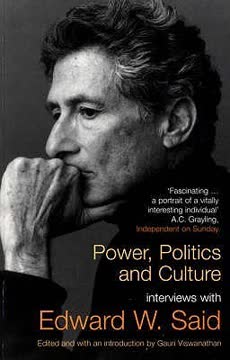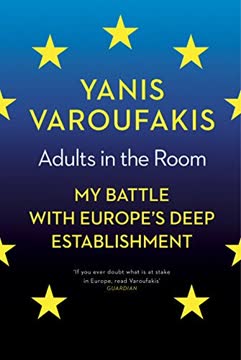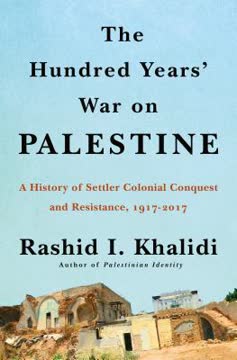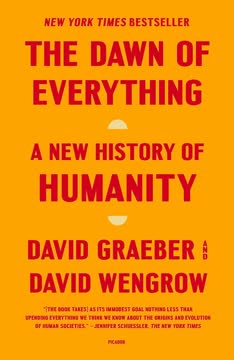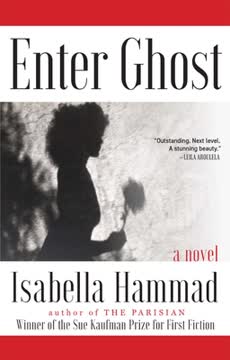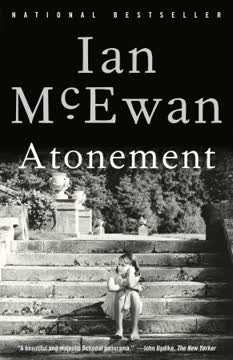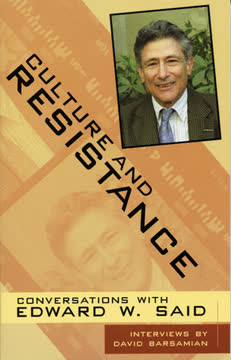Key Takeaways
1. Power Shapes Knowledge: Orientalism as a Discursive System
As a systematic discourse Orientalism is written knowledge, but because it is in the world and directly about the world, it is more than knowledge: it is power since, so far as the Oriental is concerned, Orientalism is the operative and effective knowledge by which he was delivered textually to the West, occupied by the West, milked by the West for his resources, humanly quashed by the West.
Orientalism Defined. Edward Said's seminal work, Orientalism, unveils how the West has constructed a discourse about the East that serves to legitimize and perpetuate its dominance. This discourse, termed "Orientalism," is not merely a collection of neutral observations but a system of representations that actively shapes Western understanding and control of the Orient.
Knowledge as Power. Orientalism operates as a form of power by creating a textual Orient that is then used to justify Western intervention and control. This knowledge is not simply descriptive; it is prescriptive, defining the Orient in ways that serve Western interests. This process involves:
- Textual Reconstruction: The "real" Orient is often deemed inadmissible, replaced by a Western-constructed version.
- Discursive Control: Predatory interests are woven into the fabric of Orientalist texts, shaping perceptions and justifying actions.
- Institutional Support: Religious, educational, and diplomatic institutions reinforce Orientalist representations, solidifying their authority.
Challenging the System. Said's work aims to dismantle the structure of Orientalism, empowering Orientals to speak for themselves and reclaim their own narratives. This involves revealing the biases, assumptions, and power dynamics that underpin Orientalist discourse.
2. The Intertwined Fates: Colonialism, Imperialism, and Culture
What are imperialism and colonialism but phases of a protracted struggle of the sort Bloom describes as central to the poetic process? What is the ongoing life of a dependent or colonial people but the imposition on that people of a powerful and duplicitous system (discourse) of the sort that Foucault has studied in his work?
Imperialism's Cultural Reach. Colonialism and imperialism are not merely political or economic phenomena; they are deeply intertwined with culture. Imperialism imposes a system of discourse on dependent peoples, shaping their identities and limiting their agency.
Cultural Manifestations:
- Education: Colonial education systems often prioritize the colonizer's history and culture, marginalizing native knowledge.
- Language: The imposition of a colonial language can lead to the suppression of native languages and the erosion of cultural identity.
- Representation: Imperialist narratives often depict colonized peoples as inferior, justifying their subjugation.
The Power of Culture. Culture becomes a tool of domination, shaping perceptions and reinforcing power structures. Understanding this relationship is crucial for challenging and dismantling imperial legacies.
3. Exile and the Intellectual: A Critical Perspective
If you’re an exile—which I feel myself, in many ways, to have been—you always bear within yourself a recollection of what you’ve left behind and what you can remember, and you play it against the current experience.
Exile as a Condition. Said views exile not merely as a physical displacement but as a permanent state of being. This condition fosters a critical consciousness, allowing the exile to see the world from multiple perspectives.
The Intellectual's Role:
- Bearing Recollection: Exiles carry within them memories of their lost homes, which they juxtapose with their present realities.
- Playing Against Current Experience: This juxtaposition creates a critical distance, enabling exiles to challenge dominant narratives and power structures.
- Embracing Secularism: Exiles often reject systematized thinking and embrace secularism, focusing on the world of time and history.
The Nomadic Mind. The exile's experience fosters a nomadic mind, one that is comfortable traversing boundaries and challenging fixed identities. This perspective is essential for critical inquiry and social change.
4. The Secular Intellectual: A Voice for Reason and Justice
I feel that the whole notion of a beginning would be emasculated of its strength if it were taken as advocating a “pure” beginning that stood apart from the dialectical actualities and circumstances which surround us, implicate us, as human beings and as critics.
Secularism Defined. Said champions secularism as a commitment to reason, history, and the material world. This perspective stands in opposition to religious or systematic thinking, which can limit one's understanding of human affairs.
The Secular Intellectual's Task:
- Facing Reality: The secular intellectual must confront the complexities of the world, including power, domination, and struggle.
- Rejecting Reification: Criticism should avoid reifying the critic, the text, or criticism itself, recognizing their interconnectedness and historical context.
- Reconnecting Analysis: Critics must reconnect their analyses to the societies, agencies, and lives from which they derive.
The Importance of Worldliness. The secular intellectual must be worldly, engaging with social and political questions and challenging systems of domination. This requires a willingness to investigate the material conditions of knowledge production and to reveal the hidden complicities of texts.
5. The Pitfalls of Identity: Nationalism, Nativism, and Exclusion
Whenever “humanity” or “mankind” was used it seemed immediately to reflect the truth that its user spoke for, could speak for, mankind, at the expense of most of mankind, which couldn’t.
The Dangers of Generalization. Said cautions against the use of generalizations, particularly anthropomorphic ones, which often serve to mask power dynamics and exclude marginalized voices.
Nationalism's Limits:
- Exclusion: Nationalism can lead to the exclusion and oppression of minority groups within a nation.
- Homogenization: It often promotes a homogenized view of national identity, suppressing diversity and dissent.
- Atavism: It can foster a nostalgia for a romanticized past, hindering progress and critical reflection.
The Need for Critical Consciousness. To avoid the pitfalls of identity politics, it is essential to maintain a critical consciousness, recognizing the limitations of any single perspective and embracing the complexity of human experience.
6. The Importance of Performance: Music, Literature, and the World
If you’re an exile—which I feel myself, in many ways, to have been—you always bear within yourself a recollection of what you’ve left behind and what you can remember, and you play it against the current experience.
Performance as a Lens. Said's interest in music and performance provides a unique lens for understanding culture and politics. Performance highlights the artificiality of representation and the dynamic interplay between artist and audience.
Counterpoint and Exile:
- Simultaneity: Music, particularly contrapuntal forms, offers a model for thinking about simultaneity, connection, and opposition.
- Recollection: Exile fosters a sense of counterpoint, as the exile constantly juxtaposes memories of the past with present experiences.
- Opposition: The exile's perspective allows for a critical engagement with dominant narratives and power structures.
Beyond Systematization. Said resists systematized thinking, preferring the unpredictability and self-indulgence of literature. He sees literature as a means of breaking away from the past and embracing new forms of knowledge.
7. The Palestinian Predicament: A Struggle for Recognition and Rights
I am an Oriental writing back at the Orientalists, who for so long have thrived upon our silence.
The Palestinian Struggle. Said's work is deeply rooted in the Palestinian struggle for self-determination. He views the Palestinian experience as a microcosm of the larger struggle against imperialism and oppression.
Key Issues:
- Recognition: The Palestinian struggle is fundamentally about recognition, the right to exist as a people with a distinct history and culture.
- Representation: Palestinians have been systematically misrepresented and silenced, their voices marginalized in Western discourse.
- Justice: Achieving a just resolution requires addressing the historical injustices inflicted upon the Palestinian people, including dispossession, displacement, and occupation.
The Role of the Intellectual. Said sees his role as an intellectual as one of speaking truth to power, challenging dominant narratives, and advocating for the rights of the Palestinian people. This involves dismantling the structures of Orientalism and empowering Palestinians to speak for themselves.
8. Beyond Orientalism: Towards Interdependence and Overlapping Territories
To reintegrate himself with worldly actuality, the critic of texts ought to be investigating the system of discourse by which the “world” is divided, administered, plundered, by which humanity is thrust into pigeonholes, by which “we” are “human” and “they” are not, and so forth.
Moving Beyond Binaries. Said's work challenges the binary oppositions that often characterize discussions of culture and identity. He advocates for a more nuanced understanding of the interconnectedness and interdependence of different cultures.
Key Concepts:
- Overlapping Territories: Recognizing that cultures are not isolated entities but exist in a state of constant interaction and exchange.
- Interdependent Histories: Understanding that the histories of different cultures are intertwined, shaped by colonialism, migration, and other forms of exchange.
- Transnationalism: Moving beyond national boundaries to embrace a more global perspective on culture and politics.
The Goal of Integration. Said's vision is one of integration, not separation, where different cultures can coexist and enrich one another. This requires a willingness to challenge dominant narratives and to embrace the complexity of human experience.
9. The Role of the Intellectual: Opposition, Resistance, and Ethical Responsibility
I feel myself to be clearing the library of such possessing languages as those of Orientalism, making it possible for myself as an Oriental, and for other Orientals, to speak, using whatever language we feel we need to use.
The Intellectual as Dissenter. Said views the intellectual as someone who challenges prevailing orthodoxies and resists systems of domination. This requires a commitment to truth, justice, and freedom.
Key Functions of the Intellectual:
- Investigating Systems of Discourse: Examining how knowledge is produced, disseminated, and used to maintain power.
- Revealing Secrecy: Exposing the hidden agendas and complicities that underlie cultural and political practices.
- Empowering the Marginalized: Giving voice to those who have been silenced and marginalized by dominant narratives.
The Importance of Ethical Responsibility. The intellectual must be guided by a strong ethical compass, holding power accountable and advocating for the rights of all people. This requires a willingness to take risks and to challenge the status quo.
10. The Dangers of Systematization: Hedonism as a Strategic Form of Knowledge
I think that criticism is fundamentally an activity of discovery and cognition, not of contemplation or of rigid theoretical imposition.
Resisting Systematization. Said is wary of systematized thinking, which he believes can lead to rigidity and a narrowing of perspective. He prefers a more open and exploratory approach to knowledge.
Hedonism as a Strategy:
- Refusal to Ply the Well-Trodden Path: Hedonism, in this context, means rejecting predictable regimens and embracing uncharted exploration.
- Breaking Away from the Past: It involves freeing oneself from attachments, habits, and alliances.
- Strategic Knowledge: Hedonism becomes a strategic form of knowledge, allowing for a more nuanced and critical understanding of the world.
The Importance of Discovery. Said emphasizes the importance of discovery and cognition in critical acts. He sees criticism as a process of exploration, not a rigid application of theory.
11. The Power of the Media: Representation, Control, and Resistance
The point is that institutionally, university literary critics/scholars are defused, and held nicely in check.
Media's Influence. The mass media wields immense power in shaping public opinion and constructing representations of the world. This power can be used to reinforce existing power structures and to marginalize dissenting voices.
The Media's Role:
- Setting Limits: The media often sets limits on what can be said and thought, reinforcing dominant narratives.
- Exerting Pressures: It exerts pressures on individuals and groups to conform to prevailing norms.
- Internalizing Governmental Norms: Journalists often internalize governmental norms, unconsciously promoting the interests of the state.
The Need for Media Literacy. To resist the power of the media, it is essential to develop media literacy, the ability to critically analyze and deconstruct media messages. This involves understanding the biases, assumptions, and power dynamics that shape media representations.
Last updated:
FAQ
What is Power, Politics and Culture: Interviews With Edward W. Said by Edward W. Said about?
- Comprehensive interview collection: The book gathers interviews with Edward W. Said from 1976 to 2000, offering a panoramic view of his thoughts on literature, politics, culture, and activism.
- Dual focus: It explores the intersection of literary criticism and political activism, especially regarding Middle East politics and the Palestinian question.
- Insight into Said’s evolution: Readers witness the development of Said’s ideas on Orientalism, imperialism, and the role of intellectuals, providing a dynamic complement to his formal writings.
Why should I read Power, Politics and Culture: Interviews With Edward W. Said?
- Direct access to Said’s voice: The interview format captures Said’s spontaneous, conversational style, making his complex ideas more accessible and engaging.
- Exploration of key concepts: The book delves into Orientalism, cultural representation, the politics of knowledge, and the responsibilities of intellectuals.
- Contextual and global perspective: Said’s responses situate his theories within real-world events and shifting historical contexts, offering readers a nuanced understanding of global issues.
What are the key takeaways from Power, Politics and Culture: Interviews With Edward W. Said?
- Interconnectedness of culture and politics: Said insists that literature, art, and scholarship are inseparable from political realities and power structures.
- Critical role of intellectuals: The book highlights the necessity for intellectuals to engage with social struggles and resist dominant narratives.
- Palestinian identity and justice: Said’s reflections on exile, dispossession, and the Palestinian struggle are central, emphasizing the need for recognition and reconciliation.
How does Edward W. Said define and critique "Orientalism" in Power, Politics and Culture?
- Orientalism as discourse and power: Said describes Orientalism as a system of knowledge production that authorizes and controls the East, serving imperial interests.
- Not just a myth: He emphasizes that Orientalism is an institutional and ideological framework, not merely a set of stereotypes.
- Possibility of resistance: While influenced by Foucault, Said believes Orientalist discourse can be resisted and subverted by those it targets.
What is Edward W. Said’s method of "contrapuntal reading" and how does it apply to literature and imperialism?
- Contrapuntal reading defined: Said advocates reading canonical Western texts alongside the voices and histories of colonized peoples to reveal interconnected narratives.
- Literature as imperial artifact: He argues that works like Austen’s Mansfield Park and Conrad’s Heart of Darkness are embedded in imperial contexts, often reinforcing domination.
- Culture as contested space: This method exposes how literature can both support and challenge imperial power, making room for resistance and alternative perspectives.
How does Edward W. Said describe the relationship between literature, culture, and politics in Power, Politics and Culture?
- Interconnectedness of disciplines: Said rejects the separation of literature from its political and historical contexts, arguing for a worldly, secular criticism.
- Polyphony and exile: He uses musical metaphors to describe the coexistence of multiple cultural voices, reflecting his own experience of exile.
- Critique of formalism: Said opposes purely aesthetic or formalist approaches that ignore the power dynamics embedded in texts.
What is Edward W. Said’s view on the role and responsibility of intellectuals in society?
- Intellectual as oppositional figure: Said believes intellectuals must challenge power structures and act as voices of resistance and self-examination.
- Engagement over detachment: He rejects the idea of the detached academic, urging intellectuals to connect with communities and social movements.
- Criticism as discovery: For Said, criticism is an exploratory act that links textual analysis to real-world circumstances and moral responsibility.
How does Edward W. Said address the politics of representation and media in Power, Politics and Culture?
- Representation as power: Said argues that representing "the Other" often involves control, distortion, and political violence.
- Media as ideological apparatus: He critiques Western media for perpetuating biases, especially in coverage of the Middle East and Palestine.
- Critical media consumption: Said encourages readers to approach media narratives skeptically and seek alternative sources and perspectives.
What are Edward W. Said’s insights on exile, identity, and cultural hybridity in Power, Politics and Culture?
- Exile as permanent condition: Said views exile as a formative, enduring state that shapes intellectual and cultural identity.
- Hybridity and polyphony: He embraces the coexistence of multiple, sometimes conflicting identities, rejecting essentialist notions of culture.
- Secular and worldly perspective: Said advocates for a secular approach that values complexity and intercultural understanding.
How does Edward W. Said critique contemporary literary theory and debates on the canon in Power, Politics and Culture?
- Ambivalence toward theory: While appreciating theoretical innovation, Said criticizes the political detachment of some critical avant-garde movements.
- Defense of the canon with critique: He values the literary canon’s richness but insists on reading canonical texts critically, especially regarding imperialism.
- Opposition to factionalism: Said warns against academic polarization and advocates for integrative, generous approaches to literature and multiculturalism.
What is Edward W. Said’s perspective on the Palestinian question and the Israeli-Palestinian conflict in Power, Politics and Culture?
- Centrality of Palestinian justice: Said asserts that peace in the Middle East requires a just solution to the Palestinian question, including recognition of history and rights.
- Critique of leadership and peace process: He is critical of the Palestinian leadership and the Oslo accords, viewing them as failures that perpetuate occupation.
- Vision for coexistence: Said advocates for a bi-national state with equal rights for Jews and Palestinians, inspired by South Africa’s reconciliation process.
How does Edward W. Said relate his literary and cultural scholarship to his political activism in Power, Politics and Culture?
- Integration of scholarship and activism: Said sees no separation between his roles as a literary critic and a political activist, especially regarding Palestine.
- Culture as political: He argues that literature, music, and criticism are deeply intertwined with political realities and struggles.
- Model of engaged intellectual: Said exemplifies the public intellectual who combines scholarly rigor with moral and political commitment, urging others to do the same.
Review Summary
Power, Politics and Culture is a collection of interviews with Edward Said spanning decades. Readers praise Said's breadth of knowledge, engaging conversation style, and ability to weave together literature, politics, and culture. Many find the book intellectually stimulating but challenging, requiring background knowledge. The political sections on Palestine are considered more accessible. Said's views on cultural mixing, critique of nationalism, and advocacy for Palestinian rights are highlighted. Some readers note the book's density and academic language as potential barriers.
Similar Books
Download PDF
Download EPUB
.epub digital book format is ideal for reading ebooks on phones, tablets, and e-readers.
